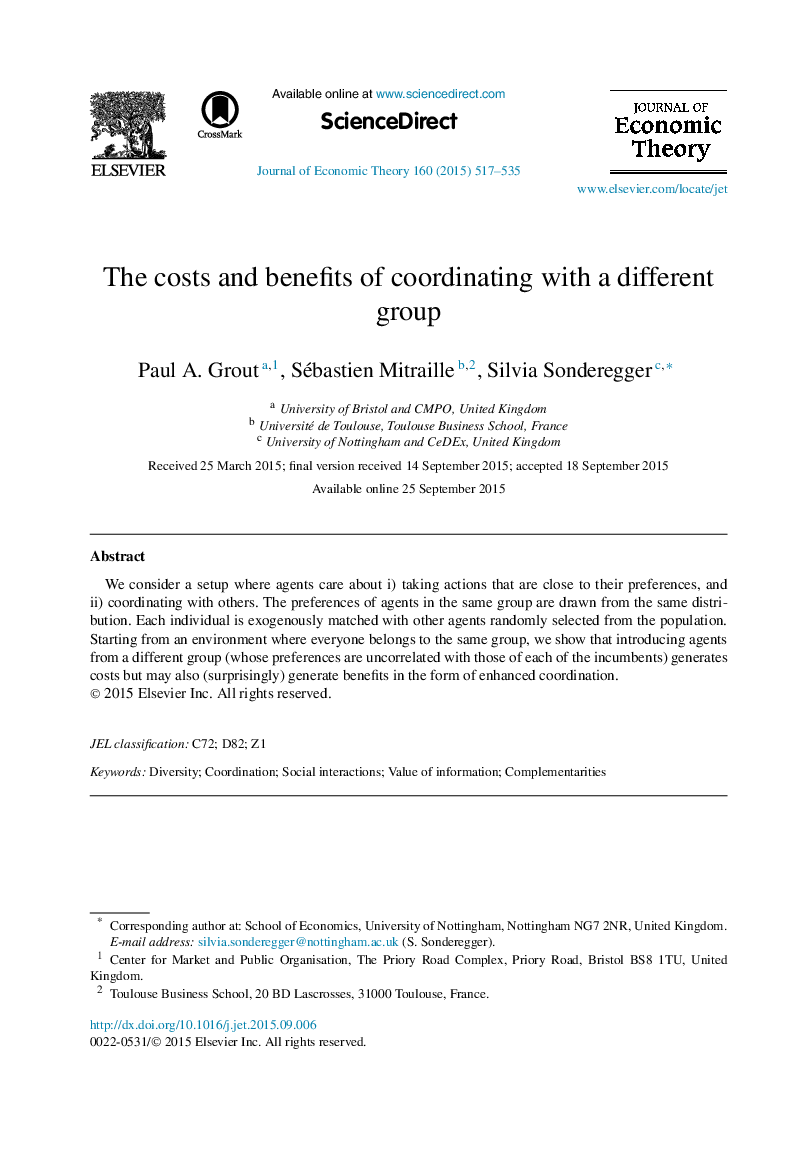| Article ID | Journal | Published Year | Pages | File Type |
|---|---|---|---|---|
| 7359652 | Journal of Economic Theory | 2015 | 19 Pages |
Abstract
We consider a setup where agents care about i) taking actions that are close to their preferences, and ii) coordinating with others. The preferences of agents in the same group are drawn from the same distribution. Each individual is exogenously matched with other agents randomly selected from the population. Starting from an environment where everyone belongs to the same group, we show that introducing agents from a different group (whose preferences are uncorrelated with those of each of the incumbents) generates costs but may also (surprisingly) generate benefits in the form of enhanced coordination.
Related Topics
Social Sciences and Humanities
Economics, Econometrics and Finance
Economics and Econometrics
Authors
Paul A. Grout, Sébastien Mitraille, Silvia Sonderegger,
